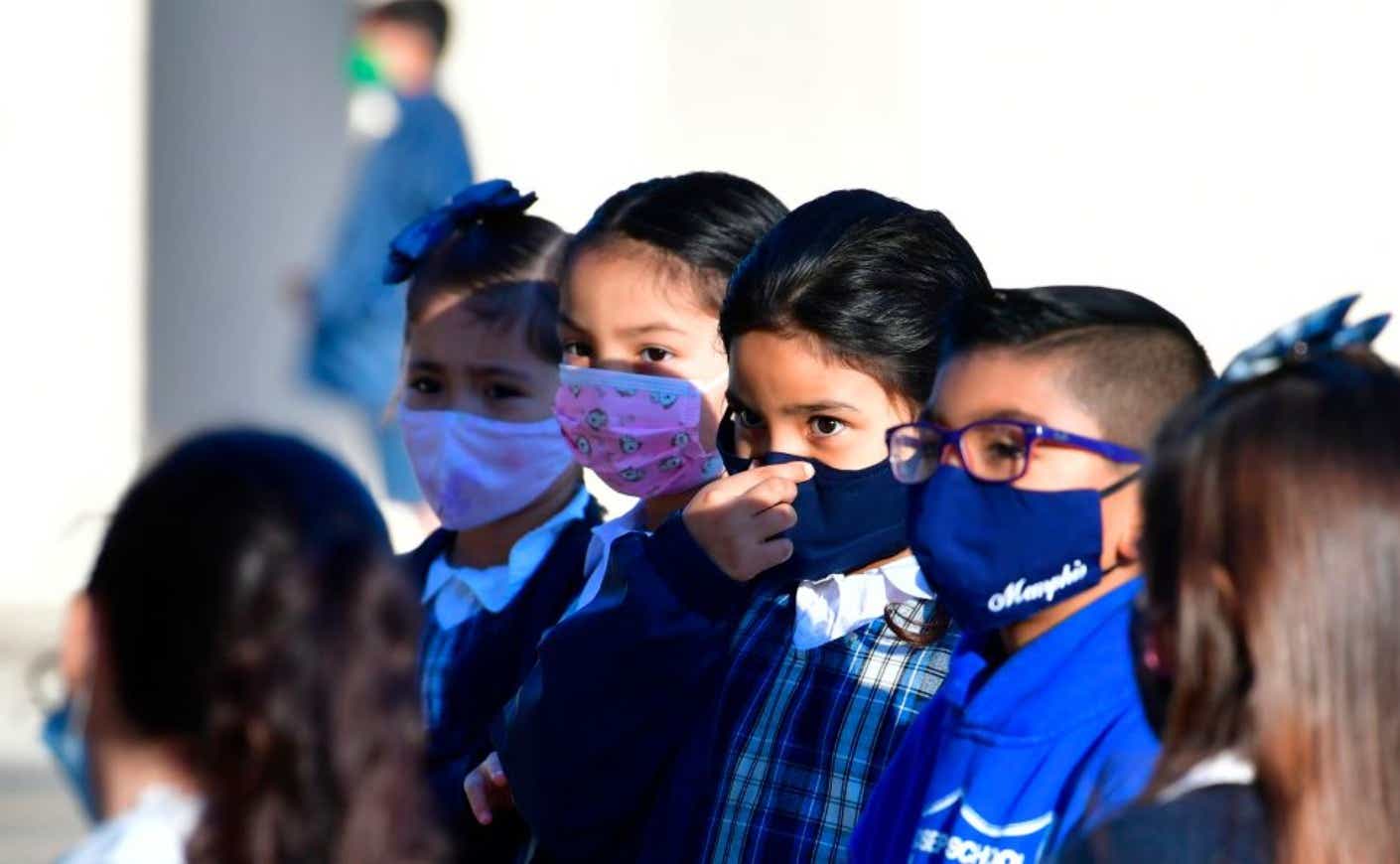There are about 18 million kids under the age of 6 in the U.S., and they still remain the only group not yet eligible for a Covid-19 vaccine, but that could soon change.
Moderna announced on Wednesday that it will ask the U.S. Food and Drug Administration to authorize its Covid-19 vaccine in children ages 6 months through 5 years old. If regulators give it the thumbs up, then Moderna’s chief medical officer Paul Burton tells us that parents can expect to get their youngsters vaccinated “later this spring or early summer — if not sooner.”
“It’s really one of our highest priorities,” Burton says of efforts to get vaccine approval for kids. “We’re working around the clock and our teams are on it all the time.”
This long-awaited news comes after the drugmaker’s clinical trial showed that its low-dose vaccine was safe and triggered an immune response against the virus. But the results are a little more difficult to interpret compared to previous studies due to the ever-evolving emergence of new variants, so we break down what you need to know below.
What did the trial say about the vaccine’s safety for kids under 6?
The data, which is based on a group of 7,000 kids, found that the vaccine was safe, and most of the side effects were mild and more common after the second dose. There were also no cases of severe illness, hospitalization, or death. Just 14 children — or 0.2 percent of the group — experienced fevers higher than 100 degrees (by comparison, Burton says other approved vaccines in this age group had a slightly higher average of 1 percent).
But since none of the participants got seriously ill, the drugmaker couldn’t estimate how effective it was against preventing severe illness. While it’s true that young children don’t typically get hospitalized from Covid, the data on this remains a bit of a mystery (the Centers for Disease Control estimates that 355 children under the age of 5 have died of the virus since the beginning of the pandemic but other estimates are higher).
The upside is there were no reported cases of myocarditis — a rare heart condition that leads to the inflammation of the heart muscle. This condition first sparked concern last year when it was discovered as a common side effect among young men and adolescent boys after getting the Pfizer and Moderna vaccines. But Burton emphasized that these cases tend to be milder and generally treatable.
“We know a lot more about myocarditis than we did last year,” he tells us. “The risk is certainly lower with mRNA vaccines than it is with Covid.”
What about the vaccine’s effectiveness among younger kids?
Moderna found that its vaccine performs just as well in children as it does in adults even though it was administered at a lower dose (instead of two 100-microgram doses, it was administered in two 25-microgram doses).
Still, the vaccine’s efficiency was lower because the study was conducted when there was a surge of cases caused by the highly transmissible omicron variant. As a result, the vaccine was only about 44 percent effective at preventing symptomatic infection in children 6 months to 2 years old, and 37 percent effective in children aged 2 through 5. But as both Moderna and White House chief medical adviser Anthony Fauci pointed out, that’s also pretty similar to how the adult doses of Covid-19 vaccines perform against omicron.
Burton explains that the lower efficiency shouldn’t be a cause for concern because the antibody levels are still high enough to fight off infection. But he expects that children will likely need a booster, which the company is still developing.
“The antibody levels are exactly where we need them to be,” he says. “We know that that should translate into protection against Covid and protection against severe Covid hospitalization, so that coupled with the safety is very reassuring and really good news.”
What happens next?
Moderna says it will submit its findings to the FDA “in the coming weeks,” and then the agency will review the application. This includes bringing in a committee of outside experts to discuss the data and make a recommendation.
That’s not all Moderna has in the works: It has applied for a fourth booster shot for adults over the age of 18 and has also initiated a submission to the FDA for emergency use authorization of the company’s Covid-19 vaccine for children ages 6 through 11 years old.
What’s happening with other vaccines for young children?
So far, Pfizer has the only vaccine available for kids, but it’s only for those as young as 5. The drugmaker announced in December that it tested its two-shot formula among 2- to 4-year-olds but it failed to create a similar immune response as seen in adults, so they added a booster to the trial. That means if Moderna’s vaccine gets FDA approval, it would be the first Covid vaccine approved for toddlers and babies in the U.S.
This is crucial especially as more variants are expected to continue to mutate and lead to more surges. Burton expects another spike in Covid-19 cases in the fall, and he says that’s all the more reason to make sure there’s a safe vaccine available for children.
“If we don’t vaccinate kids, they will act as this continual reservoir where the virus can go and then transmit back to older, more vulnerable populations in society,” he says.









